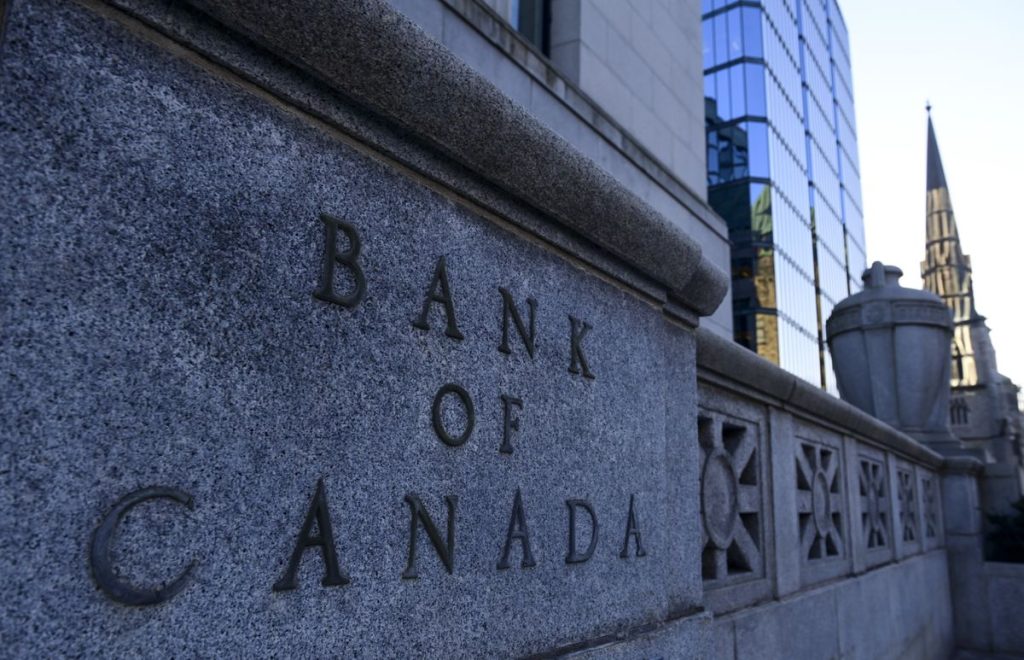On Wednesday, the Bank of Canada declared a triumphant quarter-percent increase in its key interest rate and stated that this would be their final move to combat inflationary levels unseen since long ago. This is the eighth hike consecutively since March as they attempt to rein in rapidly inflating prices with these measures.

The bank’s key interest rate is currently at 4.5%, the highest it has been in almost 14 years!
This morning, the Bank of Canada will reveal its interest rate decision amidst widespread speculation that it is likely to choose a quarter-point raise. A news statement from the central bank declared that with the Canadian economy still surpassing capacity, its governing council has decided to increase interest rates yet again. The Bank of Canada’s headquarters located in Ottawa on Tuesday July 12th, 2022 was pictured by THE CANADIAN PRESS/Sean Kilpatrick.
But if economic conditions remain as expected, the central bank has indicated that it will maintain its key interest rate at the current level.
Wednesday’s rate hike follows a period of decreasing inflation. In the summer, Canada’s annual inflation hit an apex of 8.1%, yet has since dwindled to 6.3% in December – indicative of slower economic growth over recent months and clearly presenting Wednesday’s rate increase as essential for market stability moving forward into 2021.
The Bank of Canada’s latest Monetary Policy Report, which they published Wednesday, contains the most up-to-date economic and inflation projections. As per the report, inflation is predicted to slow more than initially thought; it will descend to three percent by mid-2023 and ultimately reach its two percent target in 2024.
The recent decrease in inflation may be credited to falling oil prices as well as the mitigation of worldwide supply chain interruptions. Simultaneously, labor is still relatively scarce and both businesses and individuals maintain a heightened anticipation for rising inflation, the central bank remarked.
According to Statistics Canada’s recent labour force survey, Canada is at the brink of a historical low in unemployment with its December rate standing at five per cent. Previously, the Bank of Canada had warned about potential inflation due to strong wage growth; however now it claims these risks are on a decline as wages have leveled off.
Despite the Bank of Canada’s optimism at keeping interest rates unchanged, they made it clear that they will not hesitate to raise them if needed in order to return inflation back up to the two percent target. With high interests rates continuing their drag on our economy, this could lead to a softening of the labor market in ensuing months. “Governing council is prepared,” The central bank said, “to increase the policy rate should circumstances necessitate.”
Rising interest rates have already had a negative impact on the economy, particularly in relation to housing. However, in upcoming months we can anticipate more extensive ramifications as businesses and consumers reduce their spending due to higher borrowing costs.
As the process advances, it’s estimated that economic growth will stagnate throughout the first half of 2022 before rebounding at year-end. The Bank of Canada is forecasting a 3.6 percent boost in 2022 and an unimpressive one percent gain for 2023 — further demonstrating how this progress has been stalled by the pandemic.
The central bank has noticed that global growth is surpassing expectations, as people continue to spend money. The focus of the central bank remains on domestic prices and demand, however international dynamics have potential for inflationary effects. A case in point could be China’s lifting of COVID-19 restrictions; if this happens it may lead to a surge in world economic activity, plus rising commodity costs.
The ongoing war in Ukraine has created an environment of uncertainty and risk, according to the central bank. Additionally, domestically services price inflation could be stronger than anticipated if labour costs and heightened expectations become more established than initially projected. The Bank cited by saying “Services price inflation in Canada could be stickier than projected if elevated inflation expectations or increased labour costs prove more persistent than expected.”
Although inflationary pressures are a major worry for the Bank of Canada, an extreme global downturn could cause economic instability just as quickly.
Despite this, the risk of a serious global recession has fallen in recent months. This report from The Canadian Press was initially published on January 25th, 2023.